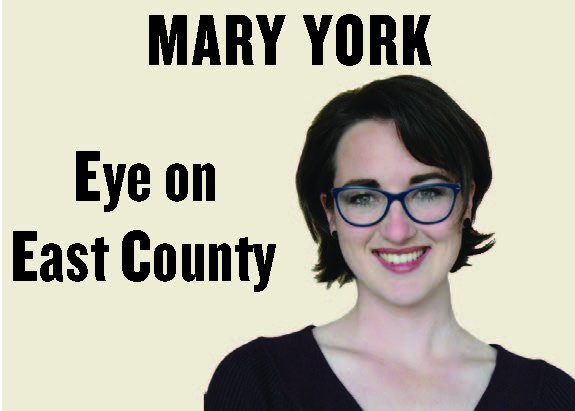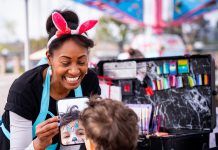Every January, I volunteer as a judge at a speech and debate tournament – the first one of the season, a national event and a real spectacle of oratorical talent. As an alumna myself of this organization (Stoa, a national homeschool speech and debate league), coming back the first weekend of every January to watch high schoolers argue about foreign policy in ill-fitting debate suits with shoulder pads too large and ties their fathers knotted for them is my favorite way to begin the new year.
Every January, I volunteer as a judge at a speech and debate tournament – the first one of the season, a national event and a real spectacle of oratorical talent. As an alumna myself of this organization (Stoa, a national homeschool speech and debate league), coming back the first weekend of every January to watch high schoolers argue about foreign policy in ill-fitting debate suits with shoulder pads too large and ties their fathers knotted for them is my favorite way to begin the new year.
The rush some people get entering their alma mater’s football stadium when Friday night’s lights are flooding the field is what I feel when I walk into a small room with a podium and two outward facing tables flanked by teenagers with brief cases.
The tournament, held at Point Loma Nazarene University, was hosted by two San Diego clubs, both of which boast East County students in their membership.
“Is there anything you’d like to see in this round, or anything about your background as a judge you’d like to share?” a sandy-haired boy with glasses asked me and a panel of other judges sitting in on the semi-final Lincoln-Douglas debate round. I love getting asked this question because I can casually slip in a mention that I am an alumnus of the league, which means automatic cool points.
That’s right. Here I am at almost thirty and I am still desperately trying to impress high schoolers.
Judging outrounds at tournaments like these, with students coming from all across the country to kick off their debate season, is quite the treat.
This semi-final round in particular was a good one. The sandy-haired boy was arguing that truth-seeking in criminal procedure should be valued over individual privacy. His opponent, a tall young man with shrewd eyes took the stance that individual privacy is connected to liberty and should be prioritized above truth-seeking in our society. They brought up Supreme Court cases, historical references like England’s writs of assistance and in-depth analysis of the role values play in civilization.
They were both well-researched and well-spoken. Perhaps more fascinating is that they have both had to argue the opposite position multiple times already this weekend. What an important life skill, to be able to understand both sides of an argument well enough that you can convincingly support it.
It would be easy to write off events like these as any other regular, run-of-the-mill nerd gathering, but after nearly two decades in the league and others like it, I have seen the importance organizations like this one.
Speech and debate prepared me for life in a way nothing else I have ventured has. Not just public speaking skills, confidence in front of strangers and the ability to whip out quippy retorts on the spot – speech and debate taught me how to think.
For all the merits of our educational system, both high school and college, it often fails its students in this critical skill – thinking. As a college student, I have found I am more often taught what to think and not how to think.
The battle for our children’s minds – and their loyalties – is fierce, with all different sides claiming alone to be able to impart the necessary truth to the next generation. Questions regarding gender and sex education, prayer or religious tolerance in schools and even math and science are bandied about, missing fact that eventually children will grow up into adults who must decide what to think for themselves. If all we ever do is teach kids what our “truth” is and not how to decipher truth for themselves using evidence from credible and varied sources that can withstand critical analysis, we will be setting them up for defeat. They might be fortified in one ideology, but they will be severely limited in their ability to adapt and grow in their principles. What is worse, they may not even fully understand why they believe what they believe.
“Nothing in the world is more dangerous than sincere ignorance and conscious stupidity,” according to Martin Luther King, Jr. He would know. He lived in a time when many Americans refused to see what was right before them, afraid of acknowledging that the status quo was flawed, that civil rights were not equally shared among the citizens of this country, that change was needed not just in laws but in mindsets.
Isaac Asimov, an American writer and professor of biochemistry at Boston University, pointed out the tendency of Americans to settle into their own narrow views.
“There is a cult of ignorance in the United States, and there has always been,” he said. “The strain of anti-intellectualism has been a constant thread winding its way through our political and cultural life, nurtured by the false notion that democracy means that ‘my ignorance is just as good as your knowledge.’”
It is good to have strong beliefs, but they should be bolstered by equally strong intellect rooted, in our own convictions and not simply the second-hand opinions of our community.
This practice is difficult enough for adults – children, certainly, need to be trained to think for themselves. They must be taught to question, to analyze, to be critical.
Ideologies aside, when are children taught critical thinking and logic in schools? Come to think of it, when are college students taught that? We study for tests, memorize answers and are graded on how well we can spout back information given to us, not on how well we can digest it, reason with it and show the depth of our comprehension.
But there is hope, and speech and debate teams are just the start. Organizations like the Optimist Club and American Legion provide students the opportunity to grapple with difficult, important topics that are relevant to our society and our communities through their annual scholarship competitions. Boy Scouts and Girl Scouts, 4-H and other programs provide young people with platforms to take on leadership positions where they will have to practice critical thinking skills, to look into pressing issues in our community and make an effort themselves to understand what is going on, what needs to be changed and how we can best affect it.
And, of course, the parents, teachers and neighbors in our community need to exemplify critical thinking personally. We must resist sounding like preachers yelling at the choir loft. If we want the children of our community to develop critical thinking skills, we have to model them ourselves – audibly recognizing the subtleties of the national debates on immigration, gun control, tax policy and social reform, exercising careful thought and intentional articulation about controversial topics, even ones we have strong opinions about.
Sports and arts and math and sciences are all good things. The realm of important extra curricular activities is wide and the hours in the day are limited, so I understand why not all parents jump to put their kids in a speech and debate club. But consider this: if we are not prioritizing independent thought in our children’s education, we are not just doing them a disservice, we are undermining the ability for them to rise up and be helpful, contributing members of society and therefore we are cutting the legs out from under an entire generation.
As always, change begins with us. How will you reflect that priority in your own home and community? What will you do to show the young people in your life the importance of knowing how to think?













